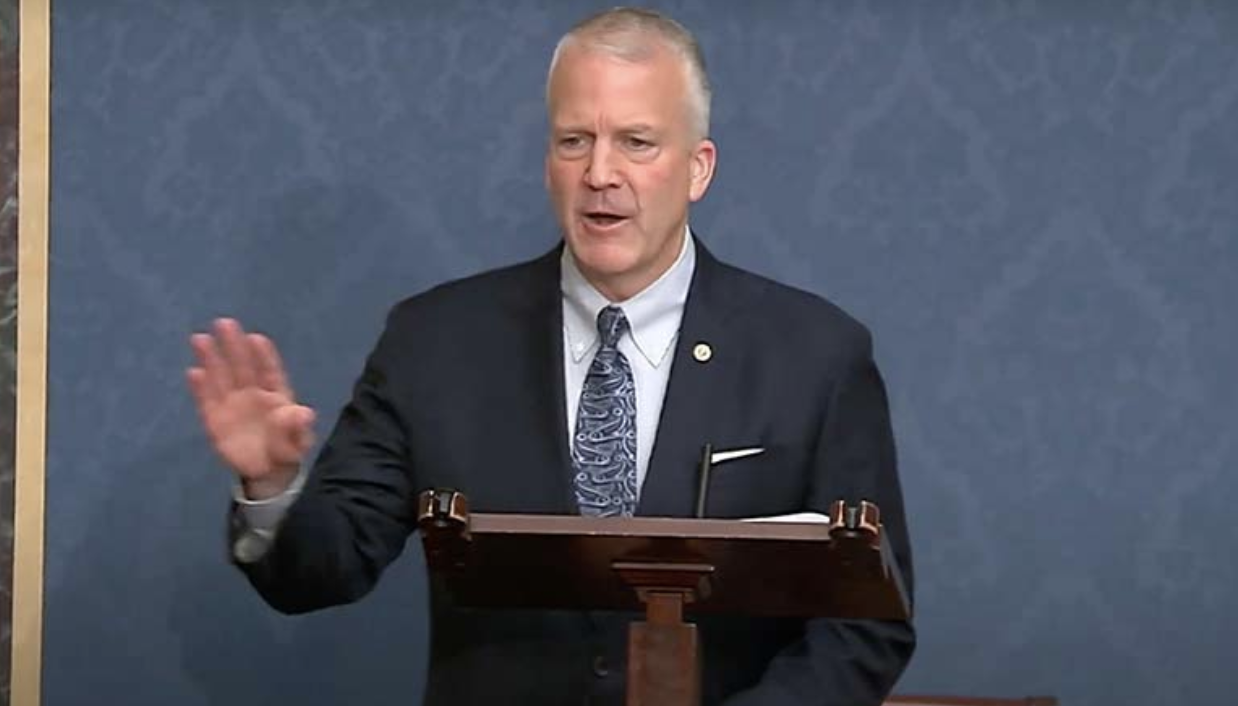US Politicians Question China’s Status As A “Developing Country”
Despite having the second-largest economy in the world, China was until recently considered a developing nation by the US. Source: Christina Zhou / Reuters
The US Senate put forward a proposed amendment on Sept. 21 calling for China not to be treated as a developing country and voted 96-0 in favor of the amendment. “The People’s Republic of China is not a developing country, and the United Nations and other intergovernmental organizations should not treat the PRC as such,” said Dan Sullivan, a senator from Alaska, in his remarks prior to the vote.
The amendment comes in lieu of the Kigali Amendment to the Montreal Protocol, ratified by the US Senate, which is an international legal framework that promotes the reducing production of hydrofluorocarbons (HFCs), a refrigerant widely used in air conditioning and refrigeration systems that exacerbates the greenhouse gas effect and ozone layer depletion. Under the framework, the US is legally bound to constrain domestic HFC consumption and to provide aid to countries that are main victims of climate change or are underdeveloped. China, under the Montreal Protocol, is classified as the latter, and thus enjoys benefits such as receiving multilateral funds and waiving HFC production limits.
Many in the Senate, including Sen. Sullivan, who proposed the amendment, consider this an unfair competitive advantage to Chinese producers in the HFC market. According to Sullivan, the US funds for combating climate change ought to be received by developing countries at high risk of climate catastrophe which cannot afford to themselves build sustainable infrastructure—unlike China.
Sen. Dan Sullivan from Alaska, stressing the importance of redesigning American strategies against China. (Photo: Cooling Post)
On Sept. 30, Sen. John Barrasso and several other senators, including Sen. Sullivan, introduced the Ending China’s Unfair Advantage Act. The act explains the practical procedure to implement the amendment by Sen. Sullivan and prohibits US funding to the Montreal Protocol until China is no longer classified as a developing country.
The amendment triggered widespread Chinese criticism. The Global Times, a major Chinese newspaper under strong state influence on international economy and politics, published an article on Sept. 23 pointing out that “the US has done poorly in tackling climate change in recent years.” It claims that Sen. Sullivan’s proposal is “another malicious aggression against China,” and is “a digression in an attempt to cover that the US is not dealing with climate change as well as China is.” Moreover, the Times stresses that “the US should not neglect the facts that China is not yet developed and that China has voluntarily forgone much of the benefits granted to developing countries,” and “the amendment is not legally meaningful under the context of the UN, as the Kigali Amendment has already been made effective to countries including China and the US.”
While the Chinese public’s opinion mostly follows the mainstream media’s narrative, some netizens hold other opinions. One Chinese citizen on the social media app Weibo mentioned that part of the evidence referred to by the US Senate to prove that China is no longer underdeveloped ironically comes from Chinese scholarly literature that praised Chinese economic progress.
There have been calls to remove China from the list of developing countries for years, but Sen. Sullivan’s amendment is a milestone, as it legally formalizes the classification in US legislation. Now, the role of China in international contexts may shift from China being a beneficiary to a benefactor.
According to the rules of WTO, if China is not a developing country anymore, it may not be authorized anymore to access aid and funds from international organizations, such as the United Nations and World Bank, as well as from other developed countries with similar policies about providing foreign aid to developing countries. Instead, China will bear more responsibilities, like environmental protection. Furthermore, China will face more constraints on adopting tariffs and other trade protection measures. Most importantly, technology transmission from developed countries, one of the vital foundations of China’s economic miracle, will likely dwindle because of stricter export control from developed countries and harsher measures against suspected intellectual property theft and cyber espionage.
All these will only exacerbate China’s economic and then political decoupling with the West, which has been going on for years, as the US continues to strengthen its role in the story.


